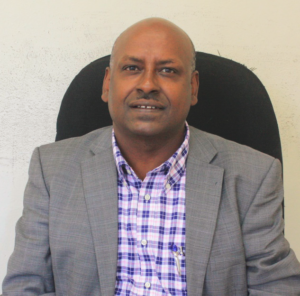
Development Studies, Addis Ababa
University
For the last two decades, the Government of Ethiopia has developed and implemented policies and legislation to achieve rural land reform. To date, however, there has been limited research conducted to assess the effectiveness of this reform process. The Land Administration to Nurture Development (LAND) project is implementing a competitive research grant scheme to enhance analytical and research capacity of Ethiopian research institutions to develop empirical evidence to support realignment of rural land policy and the legal framework and to inform the design and implementation of rural land administration and land use programs.
With this in mind, LAND awarded five research grants in 2015 in the areas of:
- Linkages of rural land tenure with sustainable development and livelihood security, poverty reduction, and natural resources management;
- Dynamics of land transaction in agricultural and agro-pastoral communities;
- Rural land scarcity, fragmentation, and landlessness;
- Sustainability of watershed development through community mobilization in the highlands and the role land tenure plays; and
- Impacts of urbanization on natural resources and livelihoods of Rural-Urban fringes of cities in Ethiopia.
The grantees are the Water and Land Resources Institute; College of Development Studies, Addis Ababa University; Institute of Development and Policy Research Addis Ababa University; Faculty of Social Science, Bahir Dar University; and Forum for Social Studies.
All grantees are currently conducting field research. Findings and recommendations generated by their research are expected to be finalized and presented at a national conference in the second half of 2016. Grantees described the scheme as providing opportunities to generate evidence on multifaceted issues of rural land in the country that will impact development of the government’s future reform efforts.
Dr. Degefa Tolossa, Dean of College of Development Studies, Addis Ababa University that has been awarded the grant to carry out research on land scarcity, fragmentation, and landlessness, and implications for rural household food security in Ethiopia, says, “Although there are interests and demand to carry out in-depth studies on land, interrelations between land and society, land and state, it has become very difficult to secure financial resources to execute sound studies. Therefore, I found the grant scheme by LAND to be timely and encouraging.”
Forum for Social Studies (FFS) is one of the grantees that is conducting research on land and sustainable development. Dr. Meheret Ayenew, Executive Director of FFS, describes the research grant as “a useful initiative for promoting broad public debate on land matters in Ethiopia – a subject that is very important for the country’s development program but one that has not attracted sufficient public discussion.” He further says, “The research grant will enable FSS, to organize informed public debate on the interface between economic development, on the one hand, and land tenure and administration on the other, supported by fresh evidence and focusing on key issues and challenges requiring the attention of policy planners and concerned government bodies”
Professor Tegegne Gebre-Egziabher, Director of the Institute of Development and Policy Research, Addis Ababa University, says “the LAND project has opened the way to undertake comparative research into the pastoral areas to understand pastoral land use and land dynamics. This will widen the available knowledge on land which used to be highly concentrated in the highland parts of the country.”
Dr. Gete Zeleke, Director of the Water and Land Resources Institute, says, “In Ethiopia, most of the support by development partners is linked to development related interventions. There is very little resource allocated to support generation of empirical evidences on specific topics, particularly on rural land policy aspects, to guide policy and decision making. This is what makes the LAND grant unique and perhaps an icebreaker for the future. Any development intervention without proper knowledge is often not successful or is unsustainable. The empirical evidence and knowledge we will generate will definitely contribute in shaping the way soil and water conservation efforts through community mobilization is being executed. It will also highlight the role of land tenure in ensuring sustainability of natural resource management efforts in the country.”

